How Hotels Can Rank Higher on Google
September 25th 2015
What is Search Engine Optimization?
Search Engine Optimization (SEO) is the practice of improving internal and external aspects of your website so that your website ranks higher on search engines and is found by customers online. No longer will your hotel or motel be unknown to customers that are searching for hotels in your location!Why Do You Need SEO?
Most web traffic is facilitated by search engines such as Google, Bing and Yahoo. These search engines use complex mathematical algorithms to determine the topic of each website. The information is indexed and when a search is done, search engines provide the most relevant websites related to the search query. So for example, if a customer searches for “hotels in Chicago,” Google will provide the most relevant websites about hotels in Chicago. However, in order for search engines to know that your website is about your hotel in Chicago, you need to tell them. If you don't tell them with SEO, the algorithms are unable to properly identify and index your website… which means customers won't find your website - and you won't book as many rooms as you should.How to Optimize?
There are many different ways to optimize your website, but since this is a beginner's guide, we will only cover a handful of the most important aspects of SEO.Keywords:
In order for customer's to find your website, you need to include the appropriate keywords and phrases throughout your website. Think of the words that your customers would use to find your hotel and make a list. If a customer wants to find “hotels in Chicago” your website needs to have those words on your website. Words such as “hotel,” “motel,” your hotel name, and the city and state of your hotel are great key words to include, but there are others. If your hotel is located near a major attraction, such as an airport or stadium, include those key words too since people often search for specific areas such as “Chicago hotels near O'Hare.” If you need help finding more keywords, try Google's Keyword Tool which shows how many searches are done monthly for key words and phrases. Once you have your list of keywords you need to put them in the right place. Here are the most important places to put them.Title Tag:
As far as Google is concerned, your title tag is the most important on-page aspect of your website so make sure to use the most important keywords here. It's also displayed in the search engine results. Look at the example below and notice how the title includes the hotel's location, the state, and the business name. Make sure to keep it to 70 characters or less, any more will get cut off.Meta Description:
Although the description doesn't technically help with SEO, it is your chance to capture the searcher's attention and get them to click on your website. Limit your description to 135 characters and use it wisely. In the example below "The Ambassador Hotel" uses the description to reiterate their location and to show off that they are upscale and modern. If you aren't sure how to change the description or title tag, don't worry. If you've hired someone to create or manage your website they should know how to change both. But if not, or if you manage your own website, it should still be easy enough to change. Most website design programs have a place to edit the page title and description. It may also be listed as “meta” title and description. Once you find the appropriate place, simply add your title and description - no technical skills required.
If you aren't sure how to change the description or title tag, don't worry. If you've hired someone to create or manage your website they should know how to change both. But if not, or if you manage your own website, it should still be easy enough to change. Most website design programs have a place to edit the page title and description. It may also be listed as “meta” title and description. Once you find the appropriate place, simply add your title and description - no technical skills required.
